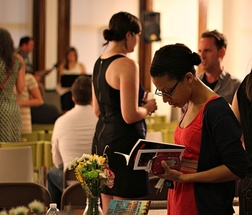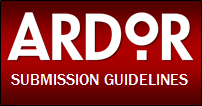
We now approach the dread month.
November can be a distressing time of year for writers like me – those afflicted by Cement Finger, Obsessive Revision Disorder, Chronic Googliosis, and other like conditions. For November, of course, serves as the main stage for NaNoWriMo, or National Novel Writing Month. As you may have guessed, NaNoWriMo is an annual, globally recognized event that challenges participants to complete 50,000 words of a novel in the span of only four weeks.
Many who undertake the NaNoWriMo challenge falter or quit their projects entirely before December 1st rolls around. Even among those who meet the 50,000 word quota, most fall short of any appreciable degree of readership or financial remuneration. Yet the very idea that each November for the past twelve years thousands of individuals across the planet have managed to place digital pen to digital paper 50,000 times in 30 days seems, to the slowest of writers, a crime of cosmic inequity.
November can be a distressing time of year for writers like me – those afflicted by Cement Finger, Obsessive Revision Disorder, Chronic Googliosis, and other like conditions. For November, of course, serves as the main stage for NaNoWriMo, or National Novel Writing Month. As you may have guessed, NaNoWriMo is an annual, globally recognized event that challenges participants to complete 50,000 words of a novel in the span of only four weeks.
Many who undertake the NaNoWriMo challenge falter or quit their projects entirely before December 1st rolls around. Even among those who meet the 50,000 word quota, most fall short of any appreciable degree of readership or financial remuneration. Yet the very idea that each November for the past twelve years thousands of individuals across the planet have managed to place digital pen to digital paper 50,000 times in 30 days seems, to the slowest of writers, a crime of cosmic inequity.
I am one of these slow writers. For me 50,000 words equates to three years of short story crafting, or perhaps a phenomenal twelve months at work on a novel. If you share in my frustration, then you understand that slow writing is rarely the result of laziness, lack of vision or the inability to draw a full head of steam. Rather, it is born of perfectionism, that stubborn but ultimately constructive inability to proceed beyond even the simplest sentence without first tweaking and tuning it to the smallest degree of precision.
In engineering, in architecture or in surgical medicine they call this professionalism. In writing this tendency is often chastised as self-defeating.
I’m here to tell you to ignore all of that.
I realize it must be tempting to consider speed freaks like Stephen King or NaNoWriMo mega-champion Sara Gruen (author of the best-seller Water for Elephants), and worry that you have some sort of deficiency (regardless of what you think of their writing). After all, the phrase “how to write faster” returns approximately 328,000 results on Google. “How to write slower” returns six. It turns out that most people don’t want to be the last one across the finish line.
Here is the important thing to remember: there is only one pace that constitutes failure for a writer and that is no writing. So long as you still find the courage to face the blank page as often as you can, and fill it with whatever amount of words you feel you can muster, you have succeeded.
Writing is an immensely personal act. For most of us, it occurs in solitude, locked in a bedroom, an office, a quiet corner of the library. Our words are informed by the lives we’ve lived, the people we’ve loved and the places we’ve traveled, yet in committing them to our art, we face them alone. This is how writing is meant to be. There is no good in looking over your shoulder, fretting about anyone’s expectations other than your own.
Write at the pace you’ve set for yourself. If you must increase this rate of production, there are unlimited resources offering advice to that end. But if you’re comfortable where you are now, if you only need reassurance that, yes, it’s okay to be one of those that spends two months polishing a ten page story … then allow me.
Yes. It is okay. You are not alone. There are plenty of others who consider meticulously crafting stories a kind of calling. Junot Díaz’s process has been compared to the smoldering death of a fire, weak enough to make him “hate” writing short stories. Harper Lee only wrote one book in her life. You may agonize over a single word, changing it and changing it back for hours – embrace this agony. You are in good company and as long as you keep at it … you too are a writer.
Good luck and slow goings.
In engineering, in architecture or in surgical medicine they call this professionalism. In writing this tendency is often chastised as self-defeating.
I’m here to tell you to ignore all of that.
I realize it must be tempting to consider speed freaks like Stephen King or NaNoWriMo mega-champion Sara Gruen (author of the best-seller Water for Elephants), and worry that you have some sort of deficiency (regardless of what you think of their writing). After all, the phrase “how to write faster” returns approximately 328,000 results on Google. “How to write slower” returns six. It turns out that most people don’t want to be the last one across the finish line.
Here is the important thing to remember: there is only one pace that constitutes failure for a writer and that is no writing. So long as you still find the courage to face the blank page as often as you can, and fill it with whatever amount of words you feel you can muster, you have succeeded.
Writing is an immensely personal act. For most of us, it occurs in solitude, locked in a bedroom, an office, a quiet corner of the library. Our words are informed by the lives we’ve lived, the people we’ve loved and the places we’ve traveled, yet in committing them to our art, we face them alone. This is how writing is meant to be. There is no good in looking over your shoulder, fretting about anyone’s expectations other than your own.
Write at the pace you’ve set for yourself. If you must increase this rate of production, there are unlimited resources offering advice to that end. But if you’re comfortable where you are now, if you only need reassurance that, yes, it’s okay to be one of those that spends two months polishing a ten page story … then allow me.
Yes. It is okay. You are not alone. There are plenty of others who consider meticulously crafting stories a kind of calling. Junot Díaz’s process has been compared to the smoldering death of a fire, weak enough to make him “hate” writing short stories. Harper Lee only wrote one book in her life. You may agonize over a single word, changing it and changing it back for hours – embrace this agony. You are in good company and as long as you keep at it … you too are a writer.
Good luck and slow goings.

Max Vande Vaarst is the founder of Buffalo Almanack, an online quarterly journal of fiction and photography. He is a writer of imaginative fiction whose work has appeared in A cappella Zoo, Inscape, Jersey Devil Press and numerous other publications. Originally from the great(est) state of New Jersey, Max received his B.A. in English and history from Purdue University and presently resides in Colorado. Find him online at www.maxvandevaarst.com.
Follow Max and Buffalo Almanack on Twitter: @BuffaloAlmanack
Follow Max and Buffalo Almanack on Twitter: @BuffaloAlmanack


 RSS Feed
RSS Feed

